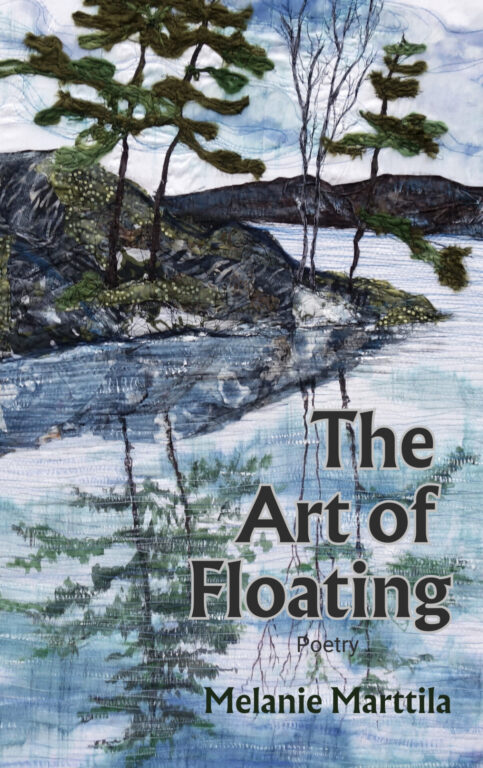by

Melanie Marttila captures the solace and healing she has found in the terrestrial landscapes, flora, and fauna of northeastern and southwestern Ontario while balancing the ebbs and flows of her mental health. There is similar reprieve in looking skyward as she shares in beautifully crafted poems the reflections of celestial patterns on moods, perceptions and relationships. Through the often insignificant and mildly miniscule moments in life, Marttila demonstrates the truth and hope that lie within each, whether connecting with land or sky. The Art of Floating is dedicated to the poet's father, who taught her how to surrender to and survive the rough waters of mental illness.
"Paying attention to the supposedly small things in life, Marttila suggests, is the way in which you can enter the world—and move through it mindfully—in a truly poetic fashion."— Kim Fahner, author of Emptying the Ocean
My father taught me
The Art of Floating
Of commending
head,
feet,
and all points between
to the water’s care.
Of letting it
fill the ears.
Turning the
whine and hum
of boat engines
into aquatic cicada song.
Of gazing at the sky
—thus deafened—
and finding in the shifting
blues and whites
a peace to shutter the eyes,
still the heart.
Terry Trowbridge on Temz Review wrote:"Melanie Marttila’s poetry collection, “The Art of Floating,” burrowed into hollows of my human and feminine essence while reading, rooting down and planting seeds of validation and peaceful affirmation. The magnitude and scope of the range of topical exploration in this collection will most definitely connect with a variety of readers. The mastery of the writing craft and experimentation of language and form renders this collection an exquisitely compelling body of poetry. Organized into five segments, “The Art of Floating” documents and helps heal emotional and psychological wounds we cradle through the adversity of life."
"Melanie Marttila’s book The Art of Floating (2024) is a collection of 67 poems about a wide range of topics. Marttila is a detail-oriented observer of her own life, who has skillfully turned her analytic abilities as a writer into a sophisticated study of the geographies, families, and cultures of Canada’s southwestern Ontario cities. For the most part, though, Marttila’s poems return to a common theme of mental health. Over the duration of the poems, a reader begins to experience a 21st-century Canadian concept of what mental health is. And, if that reader has some idea of the history of psychiatry and public health, then Marttila’s poems will seem emblematic of a much different paradigm then what the 20th century offered."






